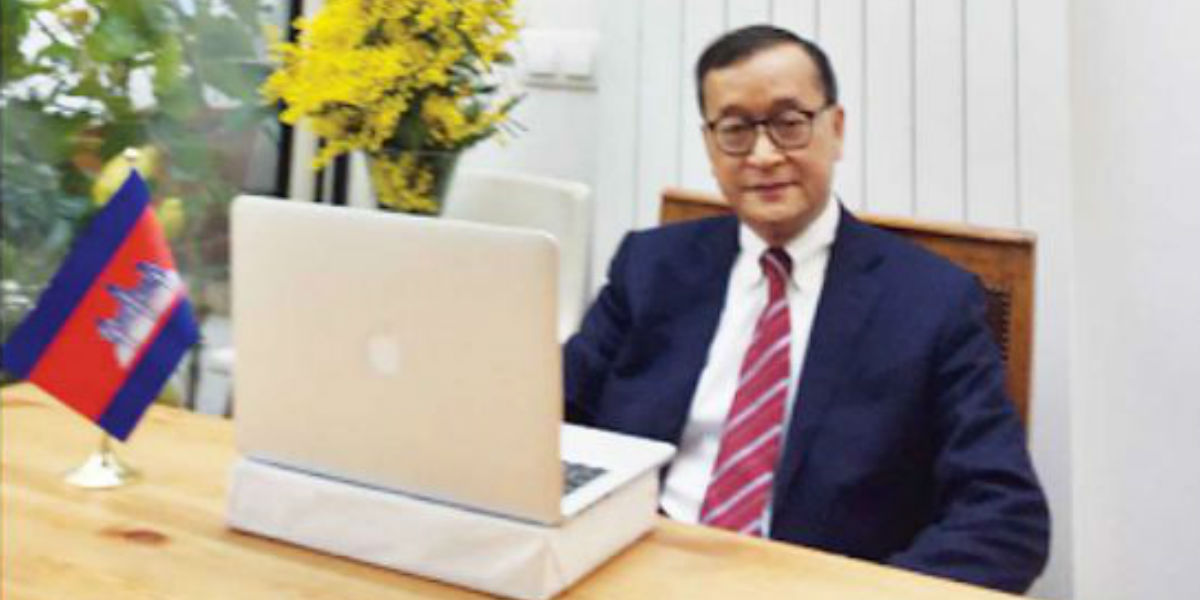Letter to the Editor of the Phnom Penh Post
Every observer of Cambodia recognises that the country is dangerously adrift. Local and national elections are scheduled for June 2017 and July 2018 and these elections have the potential to end the autocratic power that has been in place for decades. Fear of democratic change has led those in power into an ever-blinder and more violent course of repression, which affects all parts of society and which risks derailing the electoral process and provoking an explosion of popular anger.
The Cambodian People’s Party (CPP) of Prime Minister Hun Sen, in power for 38 years, is showing obvious signs of age. It has to face the reality of a young and ever-better informed population, which has become more and more critical and demanding, and an ever-more powerful opposition in the shape of the Cambodian National Rescue Party (CNRP). The opposition would have won the last legislative elections in 2013 but for the manipulations of the CPP, which many independent observers have denounced.
Three factors have increased the fears of the CPP concerning the next elections of 2017 and 2018: growing popular discontent at government corruption, notably massive misappropriation of peasant land; the dynamic of an opposition party united for the first time in the country’s modern history; and the creation and effective functioning of a new national election commission. This body, more independent and credible than in the past, is the opposition’s most important landmark achievement to date.
These three factors have led the CPP to change its strategy for clinging to power: from a traditional strategy of voter intimidation, vote buying and electoral manipulation, it has now moved to a new tactic of simply suppressing the CNRP, the only opposition party represented at the National Assembly, to avoid electoral competition.
This attempt at suppression has been carried out via the legislature: the CPP has a small majority in the National Assembly, where it has adopted an amendment to the electoral law especially made to allow the government to dissolve the CNRP at any moment under pretexts as vague as “threatening public security” or “incitement leading to the destruction of national unity”.
It has also proceeded via the judiciary: courts under government orders have sentenced several leading members of the CNRP to prison sentences “legally” incompatible with the status of a party politician, and with the exercise of public functions in the future.
As I have been condemned to such sentences for “defamation” of CPP leaders I had to resign last month from the leadership of the CNRP to avoid the dissolution of the party in the light of the new law.
Prime Minister Hun Sen and his CPP are in the process of testing international opinion to work out how far and how fast they can go in their attempt to impose a single-party system on Cambodia as under the Khmer Rouge and during the Cold War.
This attempt and this totalitarian drift, contrary to the Paris Peace Accords of 1991, have already been condemned by international rights organisations such as Amnesty International and Human Rights Watch.
It is incumbent on the governments of the democratic countries of the world to show the government of Mr Hun Sen – who still needs legitimacy and international assistance – that there is a limit which must not be crossed, and that death of a “system of liberal and pluralist democracy” laid down in the Paris accords, would result in fresh woes for the long-suffering Cambodian people.
Sam Rainsy
Former leader, CNRP
Honorary Member, GCRL
Read the original article here

